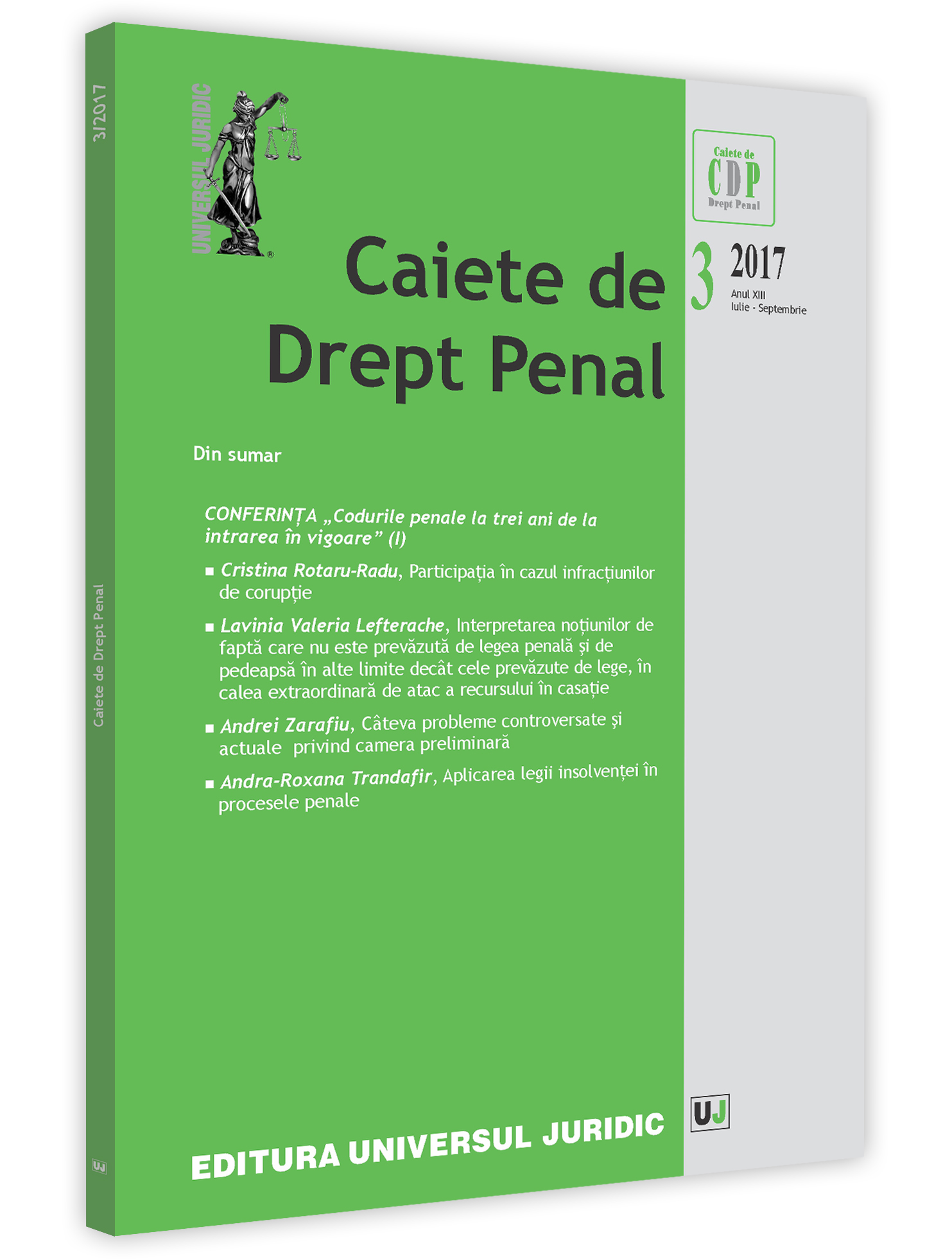Aplicarea legii insolvenţei în procesele penale
The application of the insolvency law in criminal trials
Author(s): Andra-Roxana TrandafirSubject(s): Law, Constitution, Jurisprudence
Published by: Universul Juridic
Keywords: insolvency law; criminal trials; preventive measures; asset freezing; civil action in criminal trial; confiscation; constitutionality; insolvency account; capitalisation of goods;
Summary/Abstract: The applicability of the insolvency legislation in criminal trials is becoming increasingly important, as the issues which arise have severe consequences over the rights of everyone involved in such procedures. The incorporation, in Law no. 85/2014, of several provisions regarding criminal trials generated confusion among practitioners over the way this law applies in relation to the provisions of the Code of Criminal Procedure, with controversy over which one of the laws serves as lex generalis.This study analyses aspects such as the resolution of the civil action against a legal person in insolvency (I), preventive measures (II), as well as asset freezing (III), when the legal person against which the measures are ordered is subject to insolvency. Regarding the first issue, there are currently many situations in which civil actions are ordered against a legal person subject to insolvency. By exception to the rule of the automatic stay of all judicial or extrajudicial proceedings and of the enforcement measures for recovering debt, the civil action attached to the criminal trial is resolved under the general rules, even when a legal person in insolvency is involved. This first section concerns the manner in which debts are listed, as well as their fate depending on the moment the criminal trial ends in relation to the insolvency proceedings.Next, the focus shifts on the preventive measures that can be imposed against a legal person in insolvency. First, it is argued that the preventive measure of the ban against starting or staying the dissolution or liquidation of the legal person does not apply in the insolvency proceedings, and then two more issues of the current regulation are dealt with, namely the possibility of challenging the preventive measures and the applicable time limit for such measures. Finally, one last part is dedicated to the study of asset freezing of the properties of legal persons in insolvency. There is a series of recurrent issues in case law, arising especially from newly introduced provisions, issues regarding the seizure of the insolvency account and to the possibility of capitalisation, in insolvency proceedings, of the goods for which the criminal authorities ordered the asset freezing. In conclusion, it is shown that the legal provisions in the field of insolvency are clear and offer principle solutions to numerous issues regarding criminal trials. However, the application of the mechanisms provided by the law of insolvency is difficult because, on the one hand, of secondary legislation which contradicts provisions in the higher-value provisions, and on the other hand, because of the reluctance of the criminal authorities in applying them. According to the author, the solution is not the conclusion of agreements between the authorities involved, but actually the correct application of the law.
Journal: Caiete de drept penal
- Issue Year: 2017
- Issue No: 03
- Page Range: 89-105
- Page Count: 17
- Language: Romanian
- Content File-PDF

